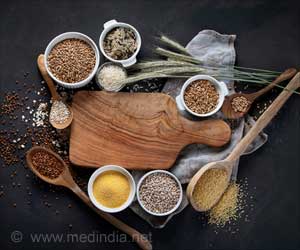At his clinic in central Mumbai, Dr Zarir F. Udwadia examines a patient's medical records and holds up X-rays to the light.
"Basically, we're in trouble here," he said, pointing out dark shadows on both lungs. "We've got her all the drugs we can muster yet she still has active TB."Udwadia's patient, Dhani, is 27, has two young children and was diagnosed with tuberculosis last May. But it has developed into the more serious drug-resistant form and she faces surgery to remove the worst-affected lung.
"I'm very frightened about my disease and what's going to happen," she said, wiping away tears with her sari. "My life is in the doctor's hands. I don't have the money to buy these expensive drugs.
"My husband turned me out when he found out I had TB."
Dhani's case is all too familiar for Udwadia, a consultant chest physician at Mumbai's private Hinduja Hospital and one of the world's leading experts on tuberculosis.
Poverty, ignorance and stigma mean India still has the highest rates of the disease in the world, he said, despite its usual form being easily treatable with cheap antibiotics and preventable with public health programmes.
Advertisement
Wednesday is World TB Day, organised by the Stop TB Partnership, a network of organisations and countries fighting the disease, which currently infects one third of the world's population, according to the WHO.
Advertisement
Udwadia accepts there have been improvements in treating regular TB but said Dhani and the 110,000 other patients in India who develop the drug-resistant form each year are falling through the net.
With medicine for drug-resistant TB costing about 3,500 rupees (77 dollars) per month and treatment programmes lasting at least six months, many ordinary Indians either cannot afford to finish the course -- or even start it.
The government fears that if drug-resistant TB takes hold it threatens to jeopardise the progress made in tackling the disease. As a result, it is widening its DOTS (directly observed treatment short-course) programme.
The World Bank says the disease is a major barrier to India's social and economic development, with 100 million working days lost to the illness each year and three billion dollars in indirect costs to the economy.
Prompt diagnosis is vital, said Udwadia, who only saw Dhani five months after she first showed symptoms of tuberculosis, which is spread by inhaling tiny droplets of saliva from the coughs or sneezes of an infected person.
Correct treatment is also needed, he added, citing a survey he and colleagues conducted in Mumbai's vast Dharavi slum, which found that just three in 100 doctors could write the correct prescription for drug-resistant TB.
The government TB India 2009 report also expressed concern about the "unregulated availability and injudicious use" of anti-TB drugs, which could lead to more drug-resistant cases.
Udwadia suggested better education could prevent more serious strains of the disease from developing -- and reduce its stigma.
"We've got a long way to go in terms of education," he said. "You don't see the kind of constant bombardment with messages of health awareness that you should be getting.
"Many patients won't go to a DOTS clinic because it's obvious that they have TB," he added.
"I've seen young girls sent home post-honeymoon night when the husband finds out that they've got TB. It's that kind of stigma and ignorance that we are dealing with."
Source-AFP
THK











